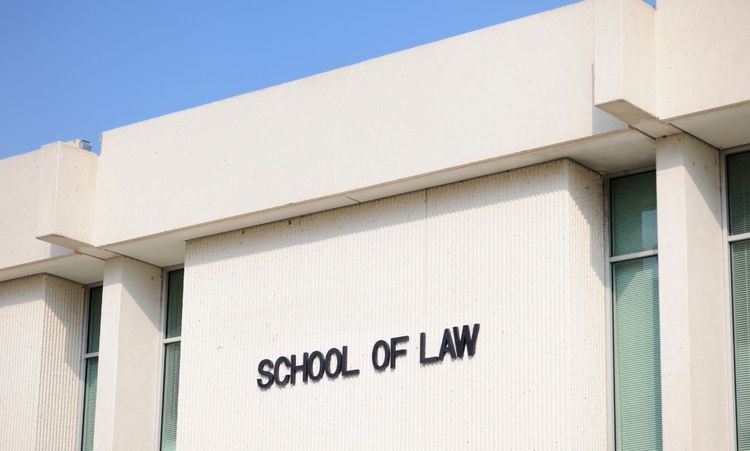Are you a high school student dreaming of a career in law? The path to becoming a lawyer starts long before law school. By taking the right classes in high school, you can set yourself up for success in your future legal career. Here's a guide to the essential classes to take in high school courses to become a lawyer.
High School Classes To Become a Lawyer
Political Science

Political science courses introduce you to studying government, politics, and public policy. You'll learn about the U.S. legal system, the Constitution, and how laws are made and enforced. This knowledge is crucial for understanding the context in which lawyers work.
Creative/Academic Writing
Strong writing skills are a must for any lawyer. Creative and academic writing classes will help you develop your ability to write clearly, persuasively, and logically. You'll learn to structure arguments, cite sources, and adapt your writing style for different audiences.
Psychology
Psychology classes teach us how people behave, why they act, and how they make choices. Being a lawyer means knowing how to work with your clients, judge, and jury. Learning psychology in school will teach you how people think and act, which you can bring into your legal work.
Math
As a lawyer, you must handle financial and statistical data, even if the law doesn't look like a numbers-driven profession. Taking math classes, especially statistics and probability, will sharpen your analytical skills and prepare you to tackle quantitative challenges in your legal career.
Public Speaking
Being a good lawyer means speaking clearly and making people believe you. Public engagement activities like talking clubs, debates, and mock court sessions help you get better at speaking out loud. Law school classes help you improve your communication skills by teaching you to create strong arguments, think under stress, and talk with dignity and understandable words.
English
English lessons help you improve reading, writing, and thinking critically. The material will build your reading, writing, and critical thinking skills while teaching you how to write sound arguments and speak more clearly. Learning to communicate effectively and talk well in class and with others will be a tool you'll use for success during law school and after.
Sociology

Sociology courses examine social structures, institutions, and inequalities. Lawyers have to solve problems that involve both fairness and good conduct. Learning sociology will help you see how laws and legal cases come from the social world around us.
History
Learning American history and government in history classes helps us understand how our legal system works. You'll learn about the historical events and ideas that have shaped our laws and legal institutions. This knowledge will enrich your understanding of legal principles and precedents.
Tips To Help You Prepare for Law School While In High School
- Develop your reading, writing, and critical thinking skills through challenging courses and extracurricular activities.
- To gain practical experience with legal skills and concepts and participate in debate teams, mock trials, or student government.
- Seek out internships or volunteer opportunities in legal settings to explore different areas of law and gain exposure to the profession.
- Start preparing for the LSAT by familiarising yourself with the test format and practising logical reasoning and analytical skills.
- Research colleges and law schools that align with your interests and career goals. Attend info sessions and connect with current students and alumni.
When Should You Start Preparing for Law School?
It's never too early to start thinking about your path to law school! While you don't need everything figured out in high school, it's a great time to explore your interests, develop relevant skills, and gain exposure to the legal field.
By taking challenging courses, participating in extracurricular activities, and seeking practical experiences, you can build a strong foundation for your future legal career. The key is staying curious, engaged, and proactive in learning and growth.
How Long Does It Take to Become a Lawyer?
Becoming a lawyer typically takes 7 years of full-time study after high school:
- 4 years to earn an undergraduate degree
- 3 years to complete law school and earn a Juris Doctor (J.D.) degree
After graduating from law school, you must pass your state bar exam to get your law license. Each state's bar exam takes 2-3 days and asks you to show your understanding of many legal subjects.
Each state asks lawyers to undergo specialist training on their own laws and legal obligations before they can start practising. When you get your law license, you have to keep learning and taking courses regularly to keep your license.
Getting a lawyer's license requires many hard steps, but for people who love fairness, speaking up for others, and helping others, it's a job that gives them personal satisfaction.
Things you'll learn in Law school

Law school is an intense and transformative experience that will equip you with the knowledge, skills, and professional identity to succeed as a lawyer. Here are some of the key things you'll learn in law school:
- Legal Research and Writing You'll learn how to find, analyse, and apply relevant laws, cases, and other legal authorities to support your arguments. You'll also develop your legal writing skills, learning how to draft clear, concise, and persuasive legal documents.
- Legal Analysis and Reasoning Law school will teach you how to "think like a lawyer"—to spot legal issues, apply legal rules and principles, and construct logical arguments. You'll also learn to analyse complex fact patterns, analogise and distinguish cases, and craft compelling legal theories.
- Substantive Law You'll gain a deep understanding of various areas of law, such as contracts, torts, property, criminal law, and constitutional law. You'll learn each area's key concepts, rules, and policies and how they apply to real-world situations.
- Oral Advocacy Through courses like trial advocacy and moot court competitions, you'll practice your oral communication and persuasion skills. You'll learn how to present arguments, examine witnesses, and think on your feet in high-pressure courtroom settings.
- Professional Responsibility and Ethics Law school will introduce you to the ethical rules and principles that govern the legal profession. You'll grapple with complex moral dilemmas and learn to navigate your professional responsibilities to clients, courts, and society.
- Practical Skills Many law schools offer clinics, externships, and simulation courses that allow you to apply your legal knowledge to real-world problems. You'll gain hands-on experience with client interviewing, fact investigation, negotiation, and other practical lawyering skills.
- Specialised Legal Knowledge Upper-level electives and specialised programs allow you to deepen your expertise in specific areas of law that align with your career interests, such as intellectual property, environmental law, or international human rights.
Law school keeps testing your skills at understanding matters deeply, talking clearly, and finding answers to difficult situations - abilities that help you succeed in jobs of every kind.
Conclusion
In high school, future lawyers must begin building the skills they'll need for their legal careers. Taking challenging political science, writing, psychology, and public speaking classes will help you learn what you need for law school and prepare you for your future career.
Law school takes time and effort - you can't rush through it like a short race. It needs lots of time, focused effort, and ongoing education to reach your goal. If you get serious about becoming a lawyer early and concentrate on what you want to achieve, you'll make good progress towards building a successful legal career.
Also Read: The 9 Cheapest Law Schools in California




